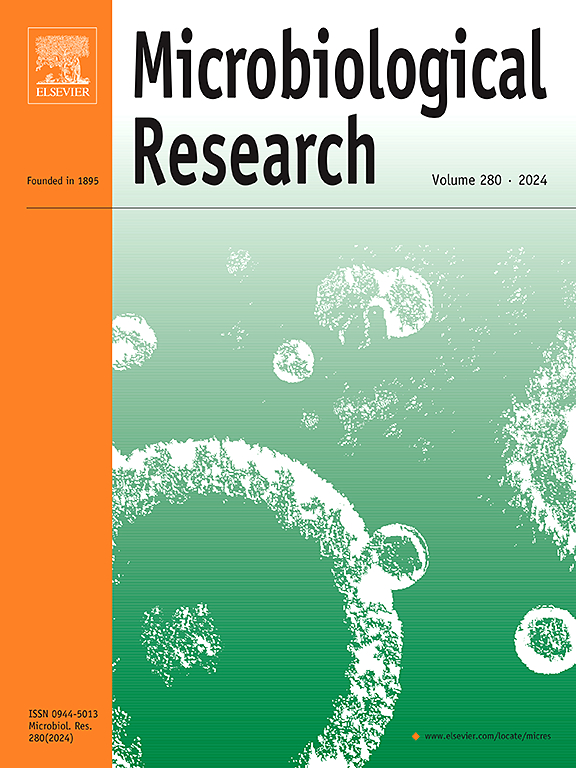Host-Directed Therapeutic for the treatment of Mycobacterium tuberculosis
IF 6.9
1区 生物学
Q1 MICROBIOLOGY
引用次数: 0
Abstract
This comprehensive review examines the emerging role of Host-Directed Therapies (HDTs) as complementary approaches to conventional Tuberculosis (TB) treatment. The review focuses on diverse HDT mechanisms utilizing their modulators like small molecule, protein-based, lipid-based, vitamin-based, and polysaccharide-based therapeutics. Key mechanisms include autophagy induction through multiple pathways, including mTOR inhibition, calcium signaling modulation, and TFEB activation. Notable compounds such as dimethyl itaconate, tamoxifen, and berbamine demonstrate significant efficacy in enhancing autophagosome formation and bacterial clearance. Matrix metalloproteinase inhibitors like doxycycline show promise in reducing tissue damage and cavity formation. The review highlights the importance of metabolic modulation through compounds like metformin and ezetimibe, which target cellular energy pathways and cholesterol metabolism respectively. Immunomodulatory approaches, including phosphodiesterase inhibition and cytokine regulation, demonstrate potential in optimizing host immune responses. Novel mechanisms such as ferroptosis inhibition and pyroptosis modulation present promising therapeutic avenues. The review also examines the role of established drugs being repurposed for TB treatment, including statins and antidepressants. While preclinical evidence supports the efficacy of various HDTs, the review emphasizes the need for careful consideration of host-pathogen interactions and potential immunological approaches. The complexity of TB pathophysiology necessitates a personalized approach to HDT implementation. Future research directions should focus on clinical validation, optimal dosing strategies, and combination approaches with standard antimicrobial therapy. This review underscores the potential of HDTs to address drug resistance and persistent infections, while highlighting the importance of continued investigation into their safety and efficacy across diverse patient populations.
用于治疗结核分枝杆菌的宿主导向疗法
这篇综合综述探讨了宿主导向疗法(HDTs)作为传统结核病(TB)治疗补充方法的新作用。本文综述了不同的HDT机制,利用它们的调节剂,如小分子,蛋白质,脂质,维生素和多糖为基础的治疗。关键机制包括通过多种途径诱导自噬,包括mTOR抑制、钙信号调节和TFEB激活。值得注意的化合物如衣康酸二甲酯、他莫昔芬和小檗胺在促进自噬体形成和细菌清除方面具有显著的功效。多西环素等基质金属蛋白酶抑制剂在减少组织损伤和空洞形成方面显示出希望。该综述强调了通过二甲双胍和依折替米贝等化合物调节代谢的重要性,它们分别针对细胞能量途径和胆固醇代谢。免疫调节方法,包括磷酸二酯酶抑制和细胞因子调节,显示出优化宿主免疫反应的潜力。新的机制,如铁下垂抑制和焦下垂调节提供了有希望的治疗途径。该审查还审查了将现有药物重新用于结核病治疗的作用,包括他汀类药物和抗抑郁药。虽然临床前证据支持各种HDTs的疗效,但该综述强调需要仔细考虑宿主-病原体相互作用和潜在的免疫方法。结核病病理生理学的复杂性需要个性化的HDT实施方法。未来的研究方向应集中在临床验证、最佳给药策略以及与标准抗菌药物的联合治疗上。本综述强调了HDTs在解决耐药和持续性感染方面的潜力,同时强调了在不同患者群体中继续调查其安全性和有效性的重要性。
本文章由计算机程序翻译,如有差异,请以英文原文为准。
求助全文
约1分钟内获得全文
求助全文
来源期刊

Microbiological research
生物-微生物学
CiteScore
10.90
自引率
6.00%
发文量
249
审稿时长
29 days
期刊介绍:
Microbiological Research is devoted to publishing reports on prokaryotic and eukaryotic microorganisms such as yeasts, fungi, bacteria, archaea, and protozoa. Research on interactions between pathogenic microorganisms and their environment or hosts are also covered.
 求助内容:
求助内容: 应助结果提醒方式:
应助结果提醒方式:


